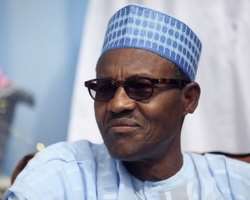BUHARI, BOKO HARAM AND THE NORTHERN ESTABLISHMENT

One of the greatest ironies of Nigeria’s current political dialectics is the fact that the only man who probably has the moral authority to end the Boko Haram imbroglio also happens to be one of the men most distrusted by the northern establishment and the government.
Characteristic of the sectionalism and obduracy that followed the bitterly divisive 2011 presidential elections, some Nigerians still hold on to the idea that former Head of State and opposition leader, Gen. Muhammadu Buhari, is behind Boko Haram and had promised to make Nigeria ungovernable if he lost the election.
This charge goes against the grain and substance of Buhari: As an army captain in the 1960s, he fought for Nigeria’s unity. As a general in the 80s, tasked with removing marauding Chadian rebels and bandits who had been pillaging Nigerian towns and killing citizens, Buhari not only chased them out, he followed them far into Chad and, in his own words, gave them a ‘bloody nose’. His action secured that border from foreign fighters for the next 20 years. Would Buhari have betrayed the people of Bakassi?
Anyway, what is the connection between Buhari, Boko Haram and the Northern establishment?
One arm of the tripod is the Boko Haram insurgency. Despite the religious colouration, the movement is basically a rebellion against a feudal system that seeks to enslave the majority while a privileged few – mostly traditional rulers, military brass and business elite – control the political and economic spaces. As a reaction against decades of oppression, a deliberate policy of emasculation and ever growing poverty, the group is only the most visible and violent.
The second arm of the tripod is the Northern establishment. Before the British conquest in the early 20th century, the emirates in the north had well developed and highly efficient social and political systems that were essentially feudal in nature, separating rulers from peasants. With British control came Western education. As in many parts of Africa, initially only the children of peasants were sent to schools – only to come back as powerful colonial clerks and messengers. Realizing the powers of western education, the establishment quietly tried to limit the ‘commoners’ access to education.
Which was why, when the then Premier of the Western Region, Chief Obafemi Awolowo, introduced Free Education in 1955, the North, already educationally disadvantaged, did not copy the policy. And that is why today, for example, Ogun state alone has more universities than the entire six states in the North-east Zone. There are more private universities in Ogun state than the entire north has. The result is that in virtually every area of human enterprise, the region lags behind other parts of Nigeria.
The third arm of the tripod is Gen. Buhari. The simple fact that he is educated should make him part of the establishment. That he joined the military and rose to the rank of General should make him a prominent leader of the establishment. That he was a military governor, petroleum minister and head of state should make him one of the richest members and de facto leader of the establishment.
But Buhari is none of these. Not only has he displayed an aversion to the politics of exclusion that is the ideology of the establishment, he also committed a cardinal sin when as Head of State, he offended (and even arrested) high-ranking members of the clique. Theoretically, Buhari lost his bid for the presidency in 2003, 2007 and 2011, but in reality, he lost long before then. Actually, Jonathan had no reason to campaign in the north, nor expend as much public funds as he did during the elections because the establishment would have stopped Buhari by any means. It was a matter of life and death.
Back to the tripod. For analysts trying to understand Buhari’s popularity among the northern masses, there is no magic to it; he is adored simply because he represents their best chance to topple a class that has systematically impoverished the region and its people. The establishment fears Buhari because they know he will dissipate their power base and end their corruption and nepotism. In essence, Buhari has the moral authority without the political power; the establishment has political power without the moral authority, while Boko Haram is fighting the establishment to create their view of a moral authority.
The tragedy is that many of those who would have championed a moderate transition from old traditions to a progressive society have been largely assimilated into the establishment, leaving the fight to the Boko Haram extremists. Where are the progressives in the North today? Rather, the dream of many young Northerners not born into the establishment is to acquire wealth and power by whatever means to buy their way into the system and to repress the less fortunate – who are responding with bombs and bullets.
Until the establishment develops just and equitable systems that would confer them with moral authority, until leaders with moral authority get the needed political influence to create a progressive society and until Boko Haram realizes that killing and maiming innocent people will bring neither political clout nor moral authority, the region may continue to reel in confusion.
Written By Salisu Suleiman
